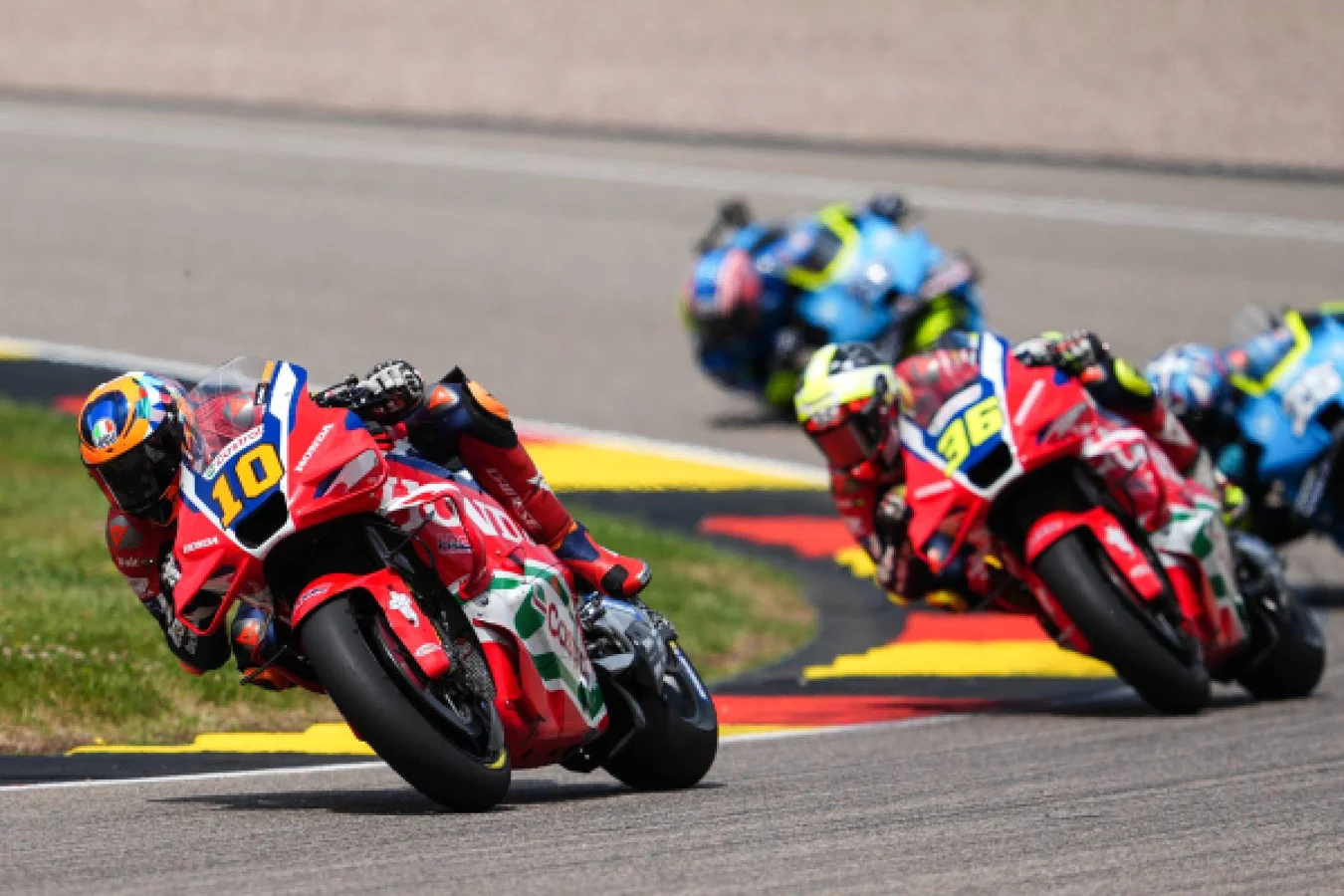Aleix Espargaro, widely recognized for his speed and skill in MotoGP racing, has recently captured attention for an unexpected venture into professional cycling. His bold Aleix Espargaro MotoGP cycling transition, marked by participation in the Giro dell’Austria, concluded prematurely after a crash during the third stage forced him to withdraw due to a wrist ligament injury.
Riding for Team Lidl-Trek, the Spanish competitor faced immediate physical challenges that disrupted his cycling debut. Despite the setback, Espargaro openly reflected on his experience, emphasizing that cycling goes beyond mere promotion or publicity for him.
Espargaro Reflects on His Unique Journey into Cycling
After investing many months in preparation, Espargaro shared the difficulties and pride he feels from this new pursuit. His transition at 35 years old from MotoGP to the cycling World Tour was a daring feat that tested his endurance and adaptability.
“After many months of preparation, doubts, and expectations, I suffered a lot for this outing, but now, in hindsight, I feel proud,”
Espargaro revealed.
“It’s incredible to experience this sport from the inside. Switching from MotoGP to cycling and debuting in the World Tour at 35 years old was insane.”
He also acknowledged the skepticism surrounding his move, often perceived by critics as a marketing stunt. Yet, the support from Team Lidl-Trek and fans helped counter such doubts. Espargaro affirmed his team’s confidence in his ability by allowing him to race alongside seasoned professionals. The encouragement from fans both at the race and online motivated him to dream bigger and commit deeply.

Challenges and Triumphs in the Demanding World of Professional Cycling
Espargaro spoke candidly about the fast pace and physical demands of the stages he competed in, noting that the intensity was unlike anything he had anticipated. Despite suffering injury and exiting the race early, his passion and determination to continue in cycling remain resolute.
In a gesture underscoring his commitment, Espargaro posted a video on Instagram highlighting his rigorous training routine, encouraging others to chase their dreams without hesitation. His pathway from a celebrated MotoGP racer to a professional cyclist was filled with obstacles, yet it represents his relentless pursuit of excellence and personal growth.
Career Milestones Highlighting Espargaro’s Racing Legacy
Espargaro’s sports career began with notable success, becoming the youngest winner of the 125 Spanish National Championship in 2004. His early accomplishments led him to the international scene, where he achieved his first World Championship podium in Moto2™ in 2011. Progressing to MotoGP™ in 2012, he secured the CRT category title consecutively and earned top results, including podium finishes and pole positions.
Joining Suzuki’s factory team in 2015, Espargaro added valuable points and a Catalan GP pole to his record before transitioning to Aprilia Racing Team Gresini in 2017. There, he steadily improved his performance and aimed for top-five finishes. His current season achievements include eight podiums, three race wins, and two poles, placing him second in the championship standings with 285 points.
Throughout his career, Espargaro has accumulated 25 victories from 180 starts and set fastest laps at multiple circuits, underpinning his reputation as a fierce competitor. His legacy in MotoGP remains strong even as he explores new horizons in cycling.
The Broader Impact of Espargaro’s Sporting Transition
Aleix Espargaro’s Aleix Espargaro MotoGP cycling transition symbolizes more than a change of sport; it reflects a deep commitment to pushing personal limits and embracing new challenges, regardless of outcome. His experience underscores the physical and mental demands of cycling while inspiring others to pursue their goals with resilience and passion.
Looking ahead, his journey may influence other athletes contemplating cross-disciplinary careers and fuels conversations about dedication and adaptability within professional sports. Espargaro’s bold leap, despite the early race exit, affirms his enduring spirit and the limitless potential for reinvention in competitive athletics.
Our Reader’s Queries
Q. Why is MotoGP not so popular?
A. The truth is that entertainment often attracts more attention than sports, so MotoGP is trying to benefit from this trend. However, MotoGP lacks personalities who can generate enough excitement to become truly entertaining.
Q. Why isn’t MotoGP popular?
A. Motorcycling isn’t as popular as football. Liberty Media’s marketing efforts can’t change that most people, 90%, don’t feel connected to motorcycling. This might work if entertainment choices were few, but that’s not the case today.
Q. Which is the fastest? MotoGP is faster. To give you an example. At the 2023 Misano MotoGP, the fastest lap time was 1:31.791 by Francesco Bagnaia with a top speed of 303.3 Km/h (188.46 mph) by Dani Pedrosa.
A. Is MotoGP faster than Superbike?
MotoGP bikes are generally faster than Superbikes. MotoGP bikes are designed with cutting-edge technology, making them quicker on the track. Meanwhile, Superbikes are based on production models and are modified for racing, but they usually can’t match MotoGP’s speed.
Q. Is F1 or MotoGP faster?
A. Formula 1 cars are faster and have better lap times, but MotoGP is equally thrilling, providing more overtakes, tighter races, and greater physical danger.
